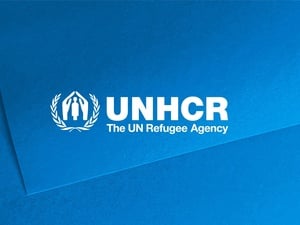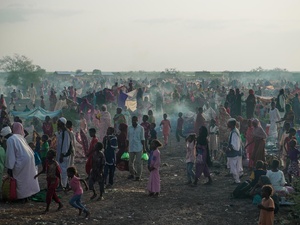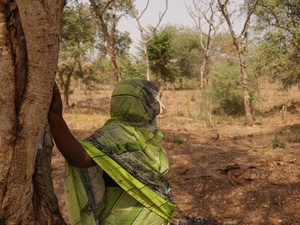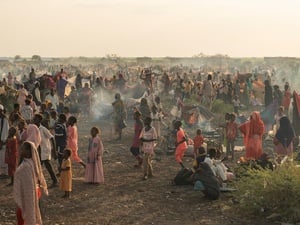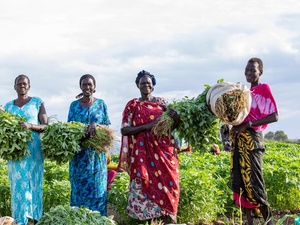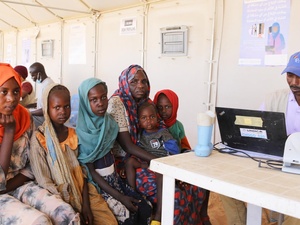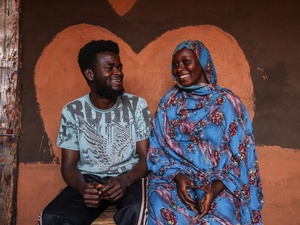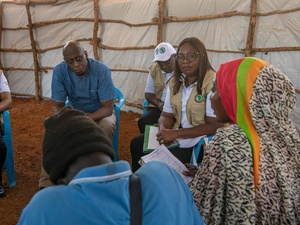Guterres warns UN Security Council of possible "catastrophe" in Darfur
Guterres warns UN Security Council of possible "catastrophe" in Darfur
New York, Tuesday 24 January 2006
UN High Commissioner for Refugees António Guterres informed the UN Security Council on Tuesday that the situation in Sudan's western Darfur region has deteriorated over the past six months and warned of a "much greater calamity" unless bold measures are taken soon by the international community.
"Today, violence and impunity - never completely in check - are again everyday occurrences in Darfur. Humanitarian workers are regularly cut off from the displaced and those they are trying to help," Guterres said in his address to the 15-member Security Council.
He noted that the insecurity has now spread across the border to Chad, where last Friday armed rebels took several government officials hostage and attacked the village of Guéréda, where the UN refugee agency is caring for more than 25,000 Sudanese refugees.
"The international community could face a catastrophe in Darfur," Guterres said. "Averting it will require bold measures and the full involvement of the African Union and the UN. If we fail - if there is no physical protection for those in need of aid - the risk is a much greater calamity than what we have seen so far."
Earlier on Tuesday, UNHCR announced that some 800 Sudanese from Darfur have arrived at one of its camps in eastern Chad this month, underscoring the deterioration in security.
In a sober assessment of the situation in Africa, Guterres told the Security Council that he believed the situation in Eastern Sudan, which has been largely out of the spotlight, was also "deteriorating steadily," and warned that developments there were closely tied to the tense situation in neighbouring Ethiopia and Eritrea. Over the past year, several thousand new Eritrean refugees have fled into Sudan and Ethiopia, he said, adding that "Any deterioration in relations between the two [countries] clearly threatens sizeable population displacement."
Guterres also stressed the need for international support for Southern Sudan, where a peace agreement was signed a year ago. Although tens of thousands of refugees and internally displaced people have started returning there, the situation was "fragile," he said.
"... In South Sudan, there are only 14 kilometres of paved road, almost no schools, no hospitals, and a civil administration that is extremely thin on the ground," he said. "Massive economic and political support to the transition is necessary now - not when everything is in place and all the rules of conditionality are met. By then it could be too late."
Guterres also gave updated information to the Security Council concerning other current trouble spots. These include the Democratic Republic of the Congo, from where up to 20,000 people fled across the Ugandan border last week; Côte d'Ivoire, where the offices of UNHCR and several of its sister UN agencies were last week attacked and destroyed; and the Central African Republic where the spread of armed gangs and general lawlessness in the north have forced thousands of people to flee to Chad and Cameroon.
Guterres told the Council that, during the aftermath of crises - the period when refugees return home - the failure to move smoothly from relief to development "ranks as one of the international community's most consistent failures."
Building on his earlier comments about the fragile situation in South Sudan, Guterres said, "Large-scale population returns are difficult to sustain if development stalls and instability grows. Without adequate resources for development, institution-building and reconciliation, societies can unravel again, dormant conflicts can reignite, and civilians can be forcibly displaced once more."
Guterres applauded the recent decision to create a Peacebuilding Commission, saying it was one of the "most significant" events of 2005.
"Too little of the international community's attention and resources traditionally go to rebuild societies that have been torn apart by war and violence," he noted.
Highlighting the complex mixed flows of refugees and economic migrants, Guterres noted the recent tragic spate of deaths of people crossing the Gulf of Aden from Somalia to Yemen, as well as those who die trying to cross the Mediterranean to Europe.
"Preserving asylum requires that we be able to find those in genuine need of protection when they are concealed by mixed flows," he said. "The challenge of identifying such individuals grows with their numbers and the risks they are willing to take."
The UNHCR chief appealed for a concerted crackdown on human trafficking and smuggling, but also drew attention to the rise of intolerance in asylum countries, saying that this was one of the biggest challenges facing UNHCR today.


